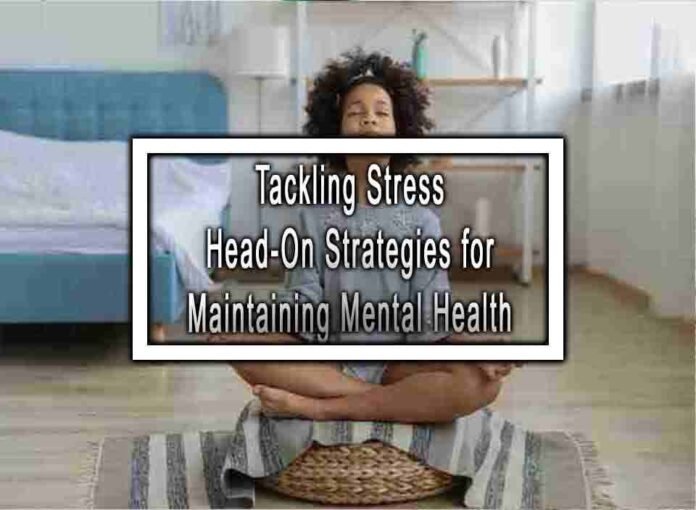Tackling stress head-on is crucial for maintaining good mental health. Chronic stress can take a toll on your well-being and lead to various mental health issues. Here are some strategies to help you manage and reduce stress:
1. Practice Mindfulness and Meditation
Mindfulness involves staying present in the moment and observing your thoughts without judgment. Meditation can help reduce stress by promoting relaxation and increasing self-awareness. Regular practice can improve your ability to manage stress.

2. Exercise Regularly
Physical activity releases endorphins, which are natural mood lifters. Regular exercise can reduce stress, improve mood, and increase overall well-being. Aim for at least 30 minutes of moderate exercise most days of the week.
3. Healthy Eating
A balanced diet can have a positive impact on your mood and stress levels. Avoid excessive caffeine, sugar, and processed foods, as they can contribute to feelings of anxiety and stress. Opt for nutrient-dense foods that support your physical and mental health.
4. Adequate Sleep
Prioritize getting enough quality sleep. Lack of sleep can exacerbate stress and negatively affect your mental health. Establish a regular sleep schedule, create a calming bedtime routine, and ensure your sleep environment is comfortable.
5. Social Connections.
Maintain healthy relationships with friends and family. Social support can provide a buffer against stress. Sharing your feelings and concerns with trusted individuals can help alleviate stress and provide perspective.
6. Time Management
Effective time management can reduce the feeling of being overwhelmed. Prioritize tasks, set realistic goals, and break larger tasks into smaller, manageable steps.
7. Deep Breathing and Relaxation Techniques
Deep breathing exercises, progressive muscle relaxation, and other relaxation techniques can help calm your nervous system and reduce stress.
8. Engage in Hobbies
Doing activities you enjoy can be a great way to relieve stress. Engaging in hobbies you’re passionate about can provide a sense of accomplishment and relaxation.
Remember that different strategies work for different people, so it’s important to find what suits you best. Combining multiple approaches can provide comprehensive stress management. If stress persists or becomes overwhelming, don’t hesitate to seek professional help. Your mental health is a priority, and taking steps to manage stress can have a positive impact on your overall well-being.











